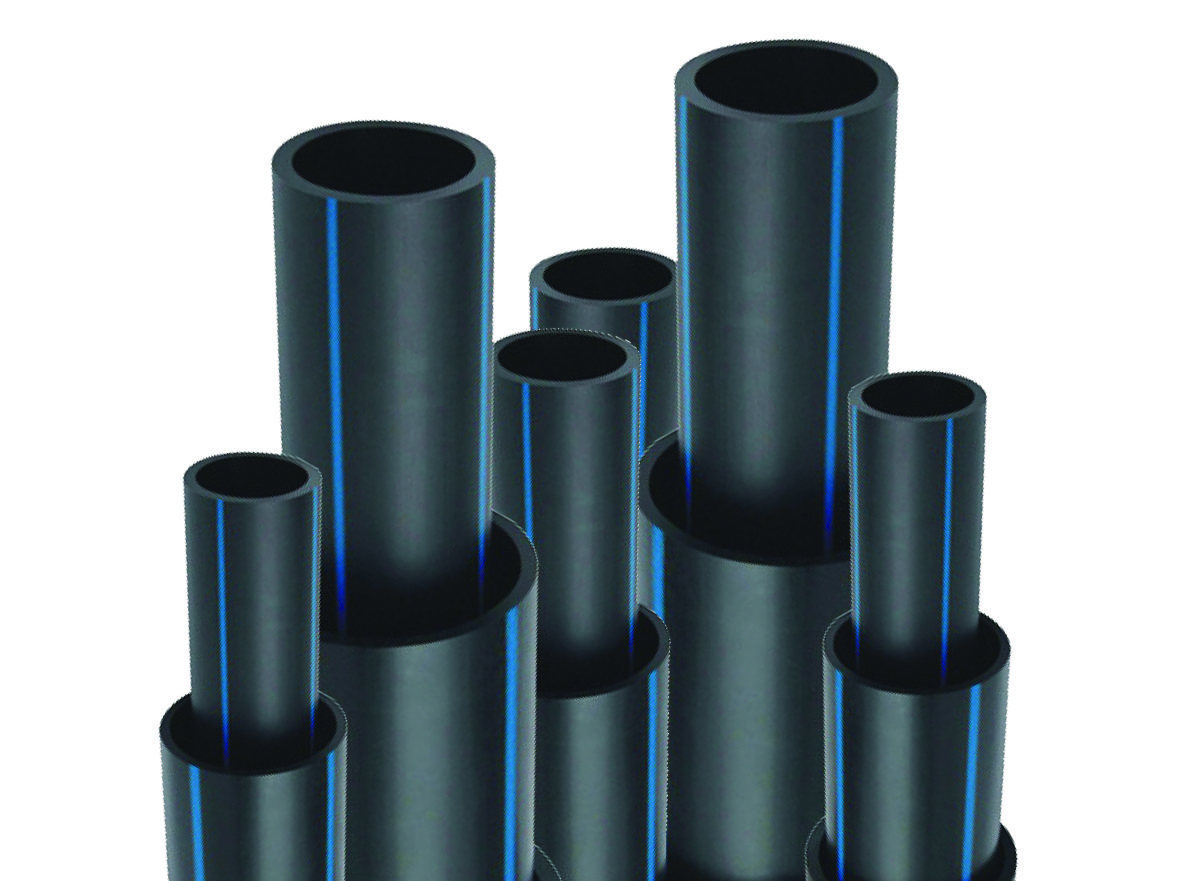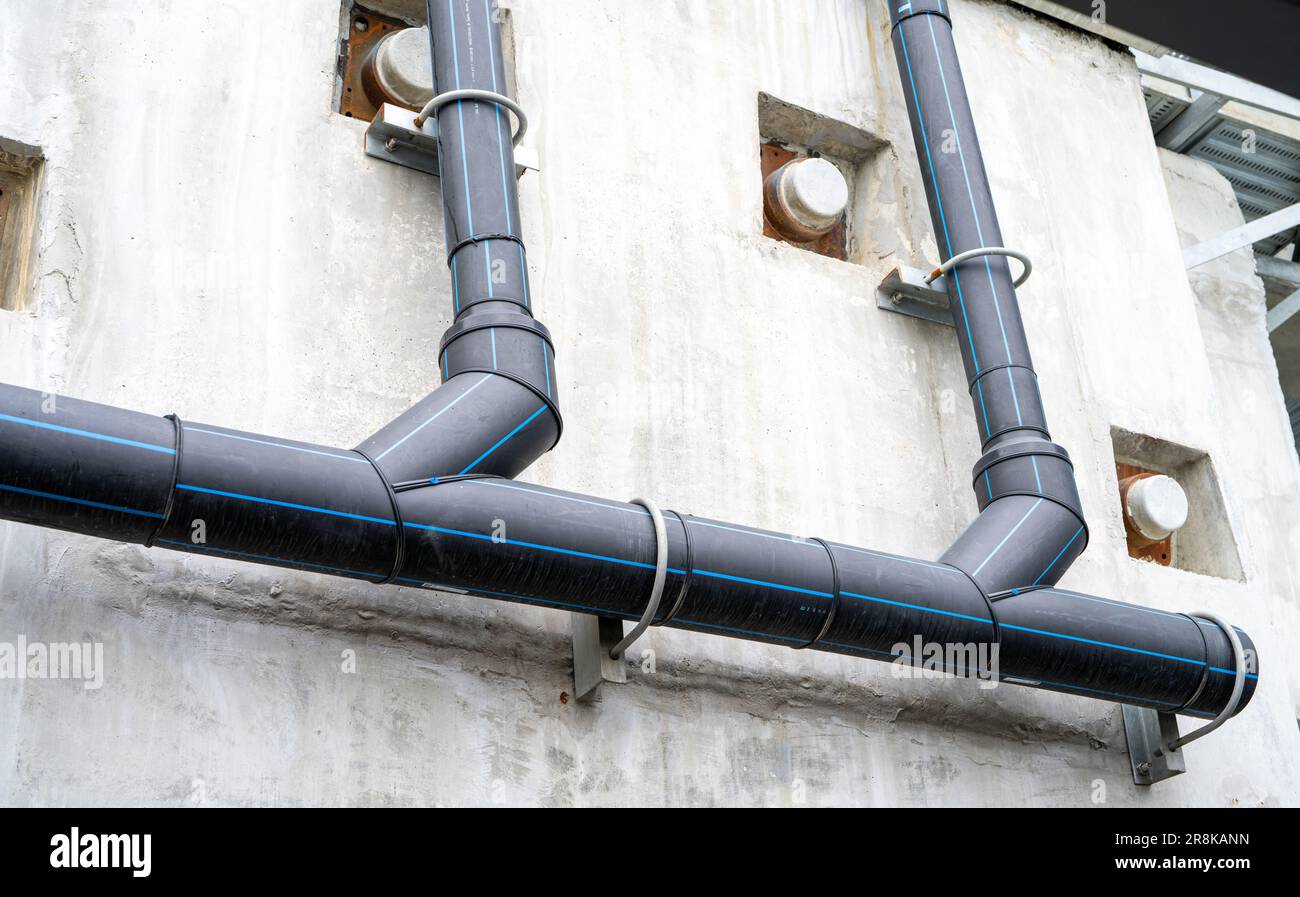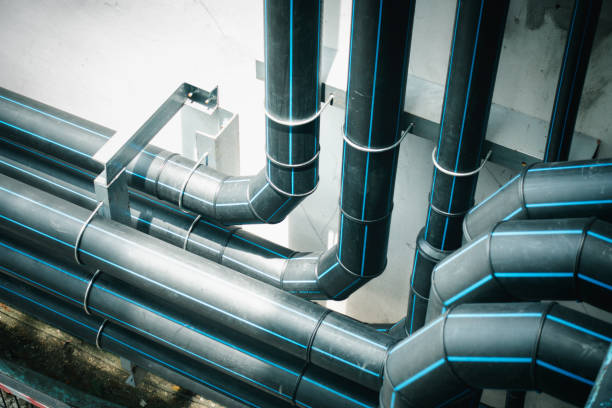Checking Out the Leading Pipeline Manufacturers: High Quality, Reliability, and Innovation
The pipeline manufacturing market stands at the junction of reliability, development, and high quality, driven by leading companies such as Tenaris and Vallourec. These manufacturers are not just devoted to creating high-performance materials but are likewise introducing lasting techniques that resolve contemporary environmental issues (HDPE Pipe Supplier). As we take a look at the requirements that specify quality in pipeline options, it becomes noticeable that the landscape is swiftly evolving. What specific technologies are emerging, and exactly how are these improvements forming the future of pipeline framework? The solutions might redefine sector requirements in manner ins which are not yet fully understood
Leading Manufacturers Summary
In the domain name of pipeline manufacturing, numerous principals become leaders, each adding considerably to the market's landscape. Companies such as Tenaris, Vallourec, and JFE Steel have actually developed themselves as frontrunners by constantly providing top quality items that meet rigorous sector criteria. Tenaris, renowned for its ingenious solutions, focuses on smooth and welded pipelines, catering mainly to the oil and gas industry. Vallourec, a French multinational, focuses on the production of costs tubular services, emphasizing sustainability and advanced modern technology in its manufacturing procedures.
Likewise, JFE Steel, a significant Japanese manufacturer, is recognized for its considerable series of steel pipes, especially those used in energy and facilities jobs. Their commitment to r & d has allowed them to generate high-performance materials that withstand harsh environmental conditions. Furthermore, firms like united state Steel and National Oilwell Varco have increased their market visibility by diversifying their item offerings and enhancing functional efficiencies.
These leading makers not only dominate the market but additionally drive advancement within the market, setting criteria for top quality and integrity that players desire attain. Their contributions are vital for meeting the boosting demand for efficient and sturdy pipeline remedies worldwide.
Criteria for Top Quality Analysis
Quality assessment in pipeline manufacturing rests on 2 important requirements: material resilience standards and making process efficiency. Ensuring that products meet strenuous sturdiness criteria is necessary for the long life and integrity of pipelines. Furthermore, maximizing the manufacturing procedure can enhance efficiency while keeping excellent quality, inevitably impacting overall efficiency and safety.
Product Toughness Requirements
Assuring the durability and dependability of pipeline products is essential for keeping infrastructure stability and operational effectiveness. Product sturdiness requirements play an important duty in reviewing the high quality of pipes, determining the performance and life expectancy of the materials made use of in construction. Manufacturers should comply with a series of extensive standards, consisting of those established by organizations such as ASTM International and the American Petroleum Institute (API)
These standards assess numerous variables, consisting of deterioration resistance, tensile toughness, and fatigue performance. As an example, pipelines utilized in destructive environments call for materials that can hold up against chemical destruction, while those based on high-pressure conditions should display exceptional tensile toughness.
Furthermore, elements such as temperature changes and ecological problems must be considered, as these can substantially influence material habits in time. Manufacturers often utilize advanced screening methodologies, including increased aging examinations, to replicate long-lasting wear and warranty that products surpass or meet industry criteria.
Manufacturing Process Effectiveness
Manufacturers' ability to enhance manufacturing process performance is crucial for creating top quality pipelines that fulfill strict sector standards. Performance in manufacturing straight influences cost management, production timelines, and overall item honesty. To achieve this, leading pipeline suppliers apply innovative techniques such as lean manufacturing, automation, and real-time information analytics.
Lean producing principles are crucial in minimizing waste and making the most of resource utilization. By streamlining processes and removing redundancies, producers can boost productivity while making sure regular high quality. Automation modern technologies, including robotics and computer numerical control (CNC) devices, play a critical duty in boosting precision and decreasing human mistake, consequently raising the integrity of the end product.
Additionally, the usage of real-time data analytics permits suppliers to keep an eye on manufacturing procedures constantly, enabling them to recognize traffic jams and make timely changes. This aggressive technique not only enhances efficiency however additionally sustains top quality guarantee methods by ensuring compliance with regulative criteria.
Dependability in Pipeline Solutions
Integrity in pipeline solutions is paramount, as it straight affects the security and efficiency of liquid transportation systems. Key aspects consist of the longevity of products utilized, adherence to extensive testing and accreditation criteria, and the unification of cutting-edge product solutions that enhance performance. Comprehending these elements is vital for manufacturers aiming to supply reliable pipeline framework.
Value of Durability
Attaining durability in pipeline options is essential, as it straight affects the long-term efficiency and security of framework. Sturdy pipelines are vital for minimizing upkeep costs and minimizing the likelihood of devastating failings. This reliability is specifically essential in sectors such as oil and gas, water supply, and wastewater monitoring, where the repercussions of pipeline failing can be severe, both economically and eco.
The products and making processes used by pipeline manufacturers play a substantial role in establishing the sturdiness of the end product. Making use of high-grade basic materials, progressed innovations, and ingenious design concepts ensures that pipelines can withstand numerous stressors, including pressure changes, temperature level variants, and harsh environments.
The durability of pipelines is closely connected to their capacity to stand up to exterior factors such as dirt activity, seismic activity, and chemical exposures. Effective deterioration security methods, such as coverings and cathodic security, better improve the longevity of pipes, protecting them versus wear and tear over time.
Purchasing durable pipeline remedies ultimately converts to increased operational performance, lowered downtime, and boosted security, attesting the crucial significance of sturdiness in contemporary pipeline manufacturing.
Evaluating and Qualification Requirements
In the domain name of pipeline services, rigorous screening and accreditation criteria are essential to ensure the reliability and safety and security of facilities. These standards serve as benchmarks for examining the efficiency and sturdiness of pipeline materials and systems, validating they fulfill specific regulatory and industry requirements.
Evaluating procedures usually incorporate numerous methodologies, including stress testing, hydrostatic evaluations, and non-destructive screening methods. These analyses are necessary for identifying prospective weaknesses or flaws in the products before they are released in real-world applications. Additionally, qualification by recognized organizations assurances that manufacturers comply with developed guidelines, which promotes trust amongst stakeholders, including engineers, professionals, and end-users.
Many prominent pipeline makers participate in continual surveillance and enhancement of their testing methods to adapt to progressing industry requirements and technological developments. Conformity with requirements such as ASTM, ASME, and ISO not just boosts product integrity but also minimizes the threat of environmental occurrences connected with pipeline failures.
Innovative Material Solutions
The growth of ingenious material options has actually changed the landscape of pipeline manufacturing, enhancing both performance and sturdiness. Advanced materials such as high-density polyethylene (HDPE), cross-linked polyethylene (PEX), and composite materials have arised as game-changers, using remarkable resistance to deterioration, temperature level changes, and pressure variations. These materials not just extend the life expectancy of pipes however additionally reduce upkeep prices, making sure dependable lasting performance.
In addition, suppliers are significantly taking on wise materials that incorporate sensors for real-time tracking. This technology enables aggressive maintenance, considerably boosting dependability by finding leaks or architectural weak points before they rise right into important failures. The integration of nanotechnology has actually also led to the growth of finishings that enhance the resilience of pipes versus abrasion and chemical exposure.
Sustainability is another crucial focus, with makers discovering bio-based compounds and recyclable products that decrease ecological effect. As governing requirements remain to progress, the focus on ingenious product services comes to be vital in meeting rigid safety and security and environmental needs. Ultimately, these innovations not only improve the dependability of pipeline systems but additionally contribute to the general performance and sustainability of energy transportation facilities.
Innovations in Pipeline Modern Technology
Technologies in pipeline modern technology are reinventing the sector by boosting performance, security, and environmental sustainability. Current improvements concentrate on smart pipeline systems that utilize sensing units and IoT technology to keep track of conditions in genuine time, enabling positive upkeep and lowering the threat of failures. These systems can discover leakages, stress adjustments, and other anomalies, enabling rapid reaction and lessening ecological influence.
In addition, the growth of innovative products, such as corrosion-resistant and composite alloys, considerably extends the life expectancy and dependability of pipelines. Pipeline Manufacturer (American Plastics LLC HDPE Pipe Solutions). These products reduce upkeep prices and boost performance in rough environments, making them optimal for oil, gas, and water transportation
Automation and robotics are playing a vital duty in pipeline construction and evaluation. Drones and robotic gadgets assist in studies and analyses of hard-to-reach areas, making certain thorough evaluations without endangering security.
In addition, cutting-edge layouts, such as modular pipeline systems, permit higher versatility in installation and alteration, catering to the dynamic requirements of the energy sector. With each other, these technological innovations not only enhance operational effectiveness but likewise contribute to a much more lasting and durable pipeline framework, leading the way for a greener future.
Study of Success
Across various sectors, effective applications of advanced pipeline innovations show substantial enhancements in functional efficiency and security. One remarkable case is the implementation of clever pipeline surveillance systems in the oil and gas industry, where real-time information analytics have actually reduced leak detection times by over 50%. This not just decreases ecological threats but likewise improves the total honesty of pipeline infrastructure.

In addition, a major manufacturer implemented robotic evaluation innovations in its pipeline upkeep procedures, resulting in a 40% improvement in evaluation effectiveness. This strategy has streamlined maintenance schedules and significantly decreased downtime.
These study highlight exactly how prominent pipeline producers are leveraging cutting-edge modern technologies to promote reliability and functional excellence, inevitably establishing new criteria for the market. As these successes proceed to unravel, they pave the method for further advancements in pipeline manufacturing and monitoring.

Environmental Sustainability Practices
Often, pipeline manufacturers are prioritizing ecological sustainability techniques to mitigate their environmental impact and improve the durability of their items. This commitment is reflected in various campaigns targeted at decreasing waste, conserving energy, and using lasting materials throughout the manufacturing procedure.

Many producers are embracing sophisticated modern technologies that decrease exhausts and power intake. As an example, the assimilation of automated systems and energy-efficient equipment aids simplify manufacturing while lowering dependence on fossil gas. In addition, companies are progressively transforming to green materials, such as recycled metals and bioplastics, which not only decrease the environmental impact yet likewise advertise a round economy.
Pipeline suppliers are applying strenuous lifecycle evaluations to review the environmental effects of their products from inception to disposal. This strategy allows them to recognize chances for enhancement and foster accountable sourcing and waste management techniques.
Cooperation with ecological companies even more boosts these initiatives, as producers look for to align their procedures with worldwide sustainability goals. Eventually, these environmental sustainability techniques not only add to a healthier earth but also position suppliers as accountable leaders in the industry, attracting ecologically mindful stakeholders and customers alike.
Future Fads in Pipeline Manufacturing
As the demand for much more lasting and efficient facilities grows, pipeline manufacturing is poised for substantial developments that will certainly reshape the market. Trick patterns anticipated in the coming years consist of the integration of innovative materials, such as corrosion-resistant and composite alloys, which enhance resilience while lessening environmental influence. Manufacturers are also anticipated to adopt ingenious manufacturing methods, like additive manufacturing and automation, to improve procedures, reduce waste, and lower expenses.
The surge of clever pipeline modern technologies, incorporating sensors and IoT devices, will make it possible for real-time monitoring and predictive maintenance, thereby improving safety and operational efficiency. This digital transformation will not only optimize source monitoring yet additionally promote conformity with stringent environmental policies.
Sustainability will certainly remain a main focus, driving manufacturers to purchase environment-friendly techniques, including energy-efficient production methods and reusing initiatives. As the global emphasis on environment modification intensifies, pipeline suppliers will require to adjust by establishing remedies that meet both ecological and financial needs.
Regularly Asked Inquiries

What Industries Mainly Utilize Pipeline Products From These Manufacturers?
Pipeline items are largely made use of in sectors such as oil and gas, water and wastewater administration, chemical mining, processing, and building. These fields depend on reliable, durable, and risk-free transport of materials and liquids.
How Do Manufacturers Make Sure Compliance With International Pipeline Specifications?
Manufacturers assure compliance with worldwide pipeline criteria by executing extensive top quality control processes, carrying out normal assessments, sticking to well-known regulatory frameworks, and buying worker training to promote understanding and understanding of security and high quality needs.
What Is the Ordinary Life-span of Pipelines From Leading Manufacturers?
The ordinary life-span of pipes from leading makers typically ranges from 30 to 100 years, depending on material, environmental conditions, and upkeep techniques. HDPE Pipe Supplies Midland TX. Routine assessments and adherence to market requirements noticeably influence durability and performance
Exist Certifications Details to Pipeline Manufacturing Quality?
Yes, various qualifications exist for pipeline making high quality, including ISO 9001 for quality monitoring systems and API criteria certain to pipelines. These certifications guarantee adherence to rigorous security, performance, and environmental criteria within the market.
How Do Manufacturers Handle Pipeline Upkeep and Fixes?
Manufacturers generally execute a proactive maintenance method that includes normal assessments, keeping track of systems for early discovery of issues, and an organized repair procedure. This approach warranties pipeline stability, decreases downtime, and improves overall functional efficiency.
Quality analysis in pipeline manufacturing hinges on 2 crucial standards: material durability criteria and making procedure effectiveness - HDPE Pipe Supplier. Material durability standards play a vital role in reviewing the quality of pipes, determining the performance and life-span of the products used in building and construction. The products and manufacturing processes used by pipeline manufacturers play a considerable duty in identifying the resilience of the final item. The average life expectancy of pipes from leading producers normally varies from 30 to 100 years, depending on material, ecological problems, and upkeep practices. Yes, various certifications exist for pipeline producing high Permian Basin HDPE Pipe Supplier quality, consisting of ISO 9001 for top quality monitoring systems and API criteria details to pipes